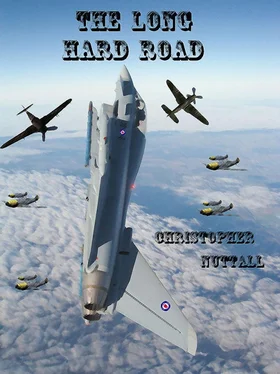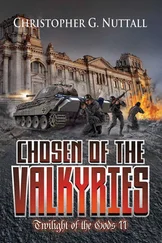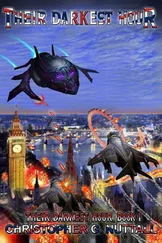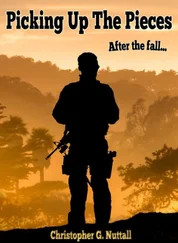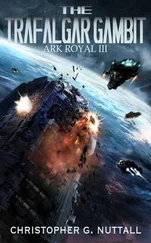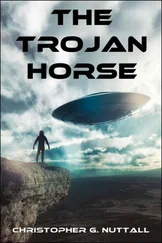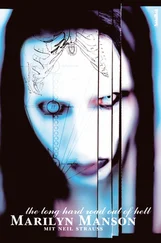Himmler sneered at him. “They do not want my last speech to be broadcast to the Werewolves,” he said.
“Germany is very peaceful,” Horton said. Himmler chose to believe that he was lying. “Resistance is minimal, and progress towards a loose democratic federation is going well.” He shrugged. “Alsace-Lorraine went back to France, by the way.”
“So much for democracy,” Himmler said. “How did they slant the voters this time?”
“They only allowed people who had been born there to vote,” Horton said. “It was the only way to compensate for the Germans who had been forced to move there.”
“I see,” Himmler said. A guard came up to the cell, clad in body armour, and followed by two more. “Is it time?”
He was pleased to realise that his voice was steady. “Yes,” the guard said. “Professor, do you wish to witness it?”
Horton shook his head. The guards opened the cell and grabbed Himmler, cuffing his hands behind his back. Himmler almost laughed; he’d never been in very good shape, and now he was half-starved as well. Did they really expect resistance from him?
“Move,” the guard said. Horton nodded once at Himmler as the guards dragged him along the corridors, taking him to his final resting place. The scaffold was simple and neat; a simple noose hanging down from the wooden pole. He felt his bowels loosen as the guards dragged him up the ramp and onto the hatch, carefully attaching the noose around his neck.
“ Führer und Reichskanzler Himmler, you have been found guilty of crimes against humanity,” the commander said, stepping back. “You have been found guilty of genocide, the use and deployment of weapons of mass destruction against helpless civilians, the mass slaughter of thousands of your own people, the mass slaughter of non-German populations, the incitement of such, in that you created the SS and…”
Himmler listened as the voice droned on. His trial had charged him with nearly three hundred offences; they’d proven seventy, including the murder of Adolf Hitler. He’d laughed aloud at that; not only wasn’t he guilty of that, but they had tried to kill Hitler themselves. The hypocrisy was staggering; he hadn’t turned a nuclear warhead on an entire city.
“Do you have any last words?” The guard asked finally. “You may speak now, if you please.”
“I have done my duty for Germany,” Himmler said, pulling himself up. “I was proud to serve Germany and I always will be. I have cleansed Europe of thousands of subhumans who would have torn it apart; I have crushed the hordes of smelly Arabs who would have threatened the meek and mild Germany you created in the original timeline. You have me to thank for that, and history will vindicate me. Heil Hitler! ”
The guard reached for a leaver. “I command your soul to any entity who believes that it is worth something,” he said, and pulled the leaver down. The trapdoor opened below himself and the rope jerked once. His neck snapped and he fell into endless darkness.
Ten Downing Street
London, United Kingdom
1 stMay 1946
The American Government had a period between the election and the inauguration ceremony, mainly to give the incoming President a chance to catch up on everything that was happening that the general public didn’t know about. For Britain, the incoming Prime Minister took over the day after the election results were announced; John McLachlan, Hanover’s successor, would move in later.
Hanover smiled tiredly to himself. He’d never married; never produced children. There were times that he regretted it, or considered an affair with one of his female friends, but he’d finally dismissed the thought. It didn’t befit a Prime Minister to have affairs during office, even though most of them had indeed had affairs.
Still, his rooms looked very empty, without the detritus of children, or even a wife. Running the country had been his only interest for the six years since the Transition; he’d finally had enough of the job. He could have stood for re-election, and he would have won, but the job was far harder when Britain was a superpower. He smiled; it would be McLachlan who would have to handle the problems in Egypt, or the security guarantees for Hong Kong… everything that Britain had said goodbye to when the Empire had been wound down – before they’d been offered a second chance.
He smiled. McLachlan had offered him a cabinet post, but he’d declined them all, yielding only to one request, from Prime Minister Nehru. India needed a Governor-General; he’d been nominated for the role. These days, it was supposed to be purely ceremonial – the Princes who had been wastrels had been quietly removed – and it would be a good place for a long rest. As a voting member of the Commonwealth, India would hardly allow him a serious role within their power structure, confusing as it was.
“Prime Minister,” his aide said, too conditioned to call him by that title to change now. “Major Stirling is here to see you.”
Hanover nodded. Stirling had gone on to serve in a combat command – a necessity for anyone who wanted to reach high office – before being assigned to the Ministry of Space. He’d been surprised when Stirling had asked for a meeting, but as a former aide, Hanover could hardly refuse.
He smiled when Stirling entered. Four years hadn’t changed him much; his hair was as blonde as ever. A wedding ring sat on one hand and Hanover felt a flicker of envy, before extending his hand for a handshake. Stirling’s grip was firm; a combat command had clearly agreed with him.
“It’s good to see you again,” he said, sincerely. “Who’s the lucky woman?”
Stirling smiled, a little abashed. “You won’t have heard of her,” he said. “It’s good to see you again too, sir.”
Hanover smiled. “I’m no longer Prime Minister, Major,” he said. “You may call me Charles.”
Stirling smiled. “That’s one of the things I wanted to ask you,” he said. “Why did you resign as Prime Minister?”
“I didn’t exactly resign,” Hanover said. “I merely hand-picked the next leader of the Conservative Party, and then didn’t stand in the election. John will do a good job; he knows how to compromise, and that’s a talent the Commonwealth will need.”
“The Commonwealth is strong,” Stirling said. “Your work, sir…”
“The Commonwealth hasn’t faced a really serious threat yet,” Hanover said. “Once such a threat appears, then we’ll see how strong it is.” He shook his head. “I was tired, Steve; tired of making the hard decisions, the ones that keep a person awake at night.”
Stirling seemed to want to ask something. Hanover waited patiently. “Is Elspeth Mortimer’s story true?” He asked finally. “Did we really sink an American SSBN?”
Hanover smiled sadly. “She’s too ambitious for her own good, that one,” he said. “Seeing that she has all the charm of a killer cobra, she has to work through people with more charm.”
Stirling lifted an eyebrow. “Like you?”
Hanover shook his head. “She wants a puppet,” he said. “I have greater ambitions for the rest of my life.”
Stirling smiled brightly. “Rumour has it that you destroyed his career,” he said.
Hanover frowned. “He did it to himself,” he said. “He gambled everything on one toss of the dice… and then a gust of wind blew them over.” He looked up at Stirling grimly. “Do you know why we’re not like America?” He asked. “The Americans say that they want a leader, but Hitler or Stalin were both leaders. The President determines his country’s attitudes; he is both Head of Government and Head of State. For us… we like being quieter.”
Читать дальше
